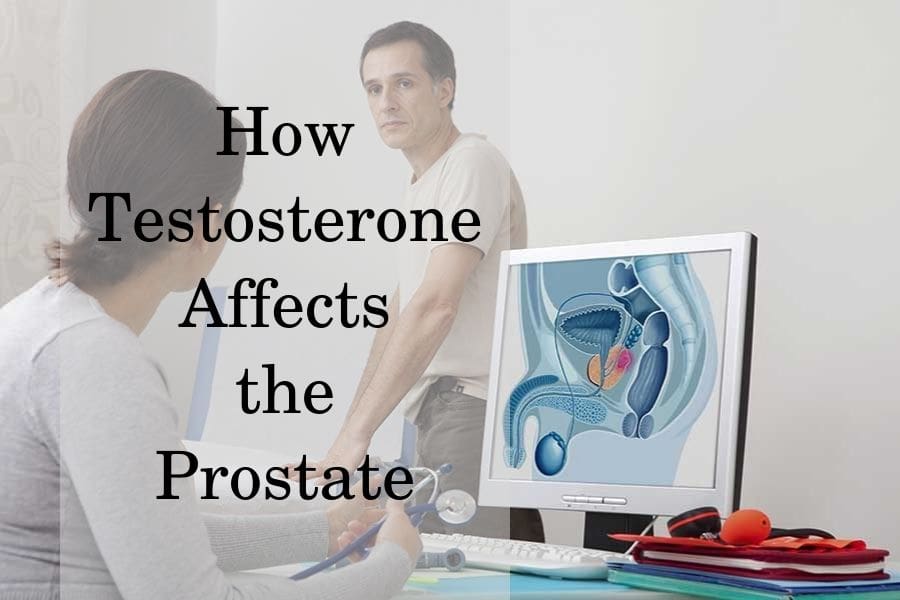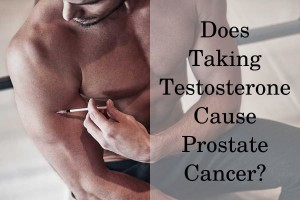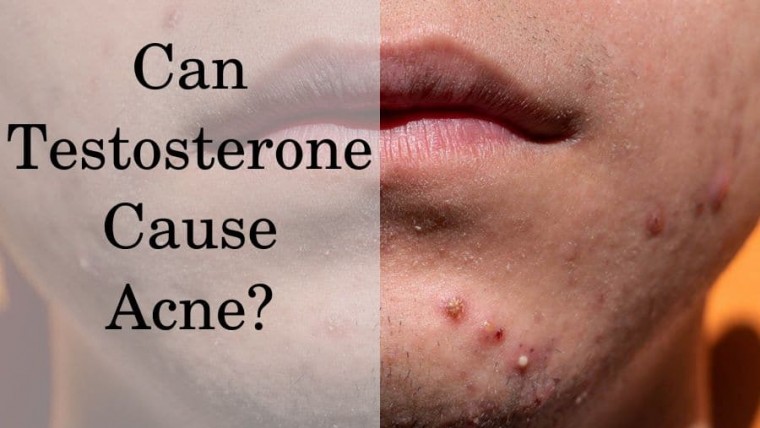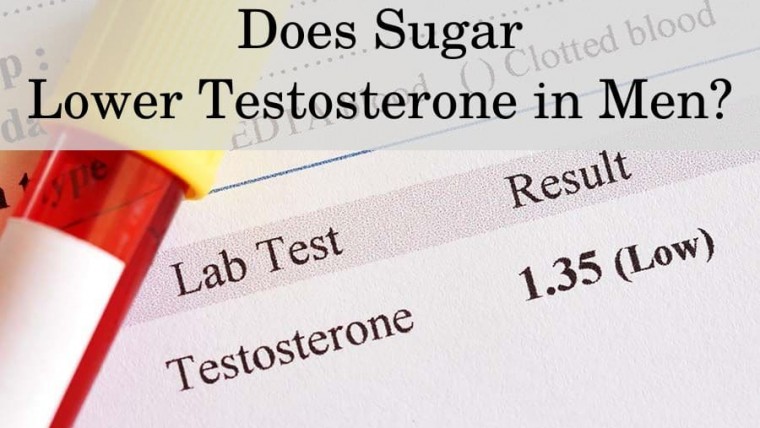In this article
One of the most controversial topics in regard to testosterone and testosterone therapy (TRT) is the effects of the hormone on the prostate.
Male sex hormones are the main driver for the growth and development of the prostate gland. This has led to concerns that higher T levels increase the risk of prostate problems related to its enlargement such as hyperplasia and cancer.
However, most studies show no link or even an inverse relationship between testosterone and prostate cancer.
What’s the link between the prostate and testosterone?
The male sex hormones such as testosterone and dihydrotestosterone (DHT) are known as androgens. These hormones are essential for the normal growth and development of the male reproductive organs and the prostate gland is no exception.
The function of the gland is to provide the majority of ejaculatory liquid that accompanies semen. As testosterone reaches the gland, an enzyme called 5-alpha-reductase transforms it into DHT.
The prostate tissue has receptors for both hormones but a much higher affinity for DHT. That is why DHT is considered to be the main hormone that influences the prostate
Nevertheless, both androgens play a key role in stimulating cell division and prostate growth. Therefore, its size normally increases from the size of a rice kernel prior to puberty (when T and DHT are low) to the size of walnut during early adulthood.
Does testosterone therapy increase the risk of prostate cancer?
Despite the fact that prostate cancer is a hormone-sensitive tumor and androgens can stimulate its growth, there is no evidence that testosterone and DHT can increase the risk of its primary occurrence.
Testosterone therapy is not proven to increase the risk of prostate cancer
On the contrary, the majority of evidence reports no relationship between testosterone levels and prostate cancer risk. Therefore, many scientists suggest that androgens play a permissive rather than causative role in prostate cancer development.
The American Urological Association recommends that every clinician should inform their patient on TRT about the absence of evidence supporting such a connection.
This has led to the so-called “saturation model” according to which, relatively low testosterone levels can saturate all of the hormonal receptors on the prostate.
Thus, increasing androgen levels above a certain threshold do not change PSA or prostate tissue growth significantly despite the high sensitivity of the gland to T and DHT. This threshold is just below the T levels indicative of hypogonadism – about 250 ng/dL.
This is why men with hypogonadism and T levels under 250 ng/dL are the most likely to see PSA increase during testosterone therapy. In this case, the PSA spike is a normal reaction to the therapy and PSA levels will not continue to rise significantly as your dose increases.
The elevation in PSA is usually about 0.3 to 0.5 ng/mL from baseline and occurs within the first month of TRT.
Who definitely shouldn’t use TRT
People with active malignancy or a history of prostate cancer shouldn’t take testosterone treatment. Due to the sensitivity of prostate cells to androgens, testosterone and DHT may speed up the growth and spread of preexisting tumors.
Thus, baseline PSA levels should be checked before starting TRT in men older than 40 in order to rule out already present prostate cancer.
Those with a family history or medical history of cancer should be carefully considered. Preliminary research appears promising but there is insufficient evidence to weigh on the risk-benefit ratio of TRT in patients with cancer on active surveillance or undergoing treatment such as radiation therapy.
Can testosterone therapy enlarge the prostate?
The enlargement of the prostate gland usually occurs due to benign prostate hyperplasia (BPH). The condition is the most common cause of lower urinary tract symptoms – LUTS in men.
These symptoms occur because the urethra runs through the prostate and as the gland enlarges it causes pressure and problems with urination. The exact cause of BPH is unknown but one of the factors which correlate the most with its incidence is aging.
Androgens are also thought to play a role by stimulating the cell proliferation of the prostate gland.
Yet, the saturation of the prostate receptors diminishes this effect. What is more, the levels of T and DHT decline as you age while BPH risk and incidence rise.
Some scientists have also suggested that it is the age-related changes in the blood supply of the prostate that play a major role in BPH. These changes also elevate the levels of testosterone in the local circulation, although the serum levels may be low in advanced age.
Can men with LUTS take testosterone?
Testosterone therapy is not associated with an increased incidence of LUTS in men with BPH who didn’t have severe lower urinary tract symptoms before the therapy.
What is more, one of the reviews available even suggests that TRT improves LUTS in some patients with BPH.
However, there are no studies to suggest whether TRT affects symptoms in patients with severe LUTS. That is because patients with severe symptoms are usually excluded from the studies.
Therefore, the recommendation by the Endocrine Society is to avoid TRT in patients with severe lower urinary tract symptoms.
Currently, we lack enough studies to confirm that testosterone injections may prevent LUTS, BPH, or shrink an enlarged prostate.
How can testosterone help with prostatitis?
Prostatitis is a condition caused by the inflammation of the prostate which results in pain and swelling of the gland. Due to the swelling, patients may also experience lower urinary tract symptoms.
The condition can be acute or chronic. The inflammation in acute prostatitis is usually caused by bacteria, while the cause of chronic prostatitis remains unknown in 90% of the cases.
Chronic prostatitis may also progress into chronic pelvic pain syndrome which is associated with a significant reduction in quality of life due to persisting pain and debilitating lower urinary tract symptoms.
Prostatitis may also occur secondary to BPH because urination problems cause urine retention which makes the gland more susceptible to infection.
In such cases, TRT may help reduce the risk of infection by reducing LUTS. Trials show that TRT can help reduce the incidence of prostatitis in BPH patients down to 10%, compared to the 30% incidence in the placebo group.
Experimental studies also suggest that testosterone has anti-inflammatory effects on prostate tissue and may suppress the invasion and colonization of the gland by pathogenic bacteria such as Escherichia coli.






